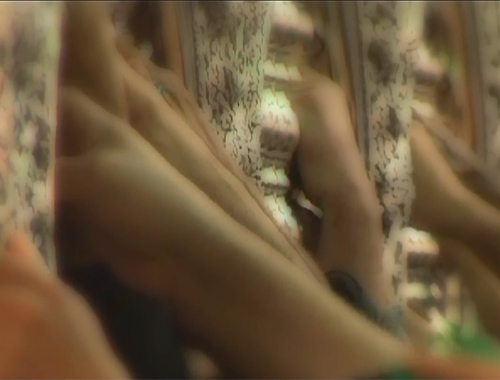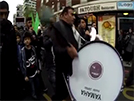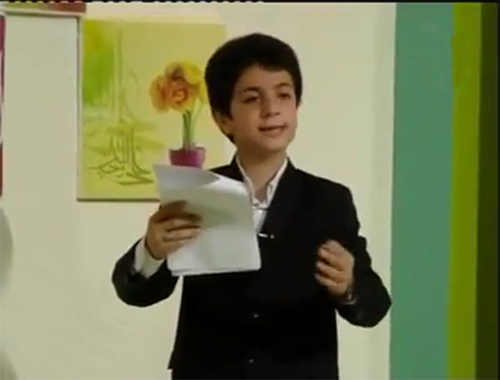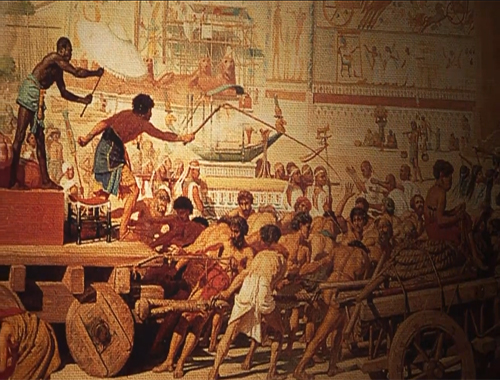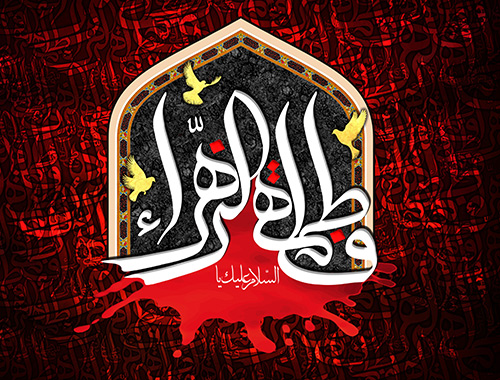Tasbeeh of Fatimah Zahra (pbuh)
- Details
- Hits: 8889
Prophet Muhammad's (pbuh) whole life was shaped by thoughts of the hereafter. Prophet Muhammad (pbuh) loved his children, but not in any worldly way. Fatimah Zahra (pbuh) used to run her house without much help; Prophet Muhammad (pbuh) could see how hard his daughter worked at home.
Imam Ali ibn Talib (as), Fatimah Zahra's husband, once told Ibn Wahid a story about Prophet Muhammad's (pbuh) most beloved daughter. Imam Ali ibn Talib (as) said, Fatimah Zahra's (pbuh) hands were blistered from constant grinding; her neck had become sore from carrying water; her clothes would become dirty from sweeping the floor. When Prophet Muhammad (pbuh) had received an influx of servants from some place, Imam Ali ibn Talib (as) suggested to his wife that she approach her father and ask for a servant. Fatimah Zahra (pbuh) went, but could not speak to Prophet Muhammad (pbuh) because of the people who were surrounding him. Next day, Prophet Muhammad (pbuh) came to their house, and asked Fatimah Zahra (pbuh) as to why she wanted to see him. Imam Ali ibn Talib (as) told the whole story to Prophet Muhammad (pbuh), and said that Fatimah Zahra (pbuh) went to him on his advice. "Fear Allah (SWT), Fatimah," Prophet Muhammad (pbuh) said, "Fulfill your obligations to the Lord, and continue with your housework."
Then, Prophet Muhammad (pbuh) said he would give her something that would be better than a helper or anything else she wished in this world, this is when Prophet Muhammad (pbuh) gives Fatimah Zahra (pbuh) the gift of this Tasbih/Tasbeeh and its is known as Tasbih/Tasbeeh of Fatimah Zahra (pbuh). And said when you go to bed at night, read the following:
34 times - Allahu Akbar (Allah is the Greatest)
33 times - Alhamdulillah (Praise be to Allah)
33 times - Subhan Allah (Glory be to Allah)
Tasbeeh of Fatimah Zahra (pbuh)This would be much better than having a servant.
"If that is the will of Allah (SWT) and His Prophet Muhammad (pbuh)," Fatimah Zahra (pbuh) replied "then so be it." This was Prophet Muhammad's (pbuh) only reply. Prophet Muhammad (pbuh) did not provide her a servant.
This Tasbih/Tasbeeh is recommended to be read after every Namaz/Salah. The Salah is like a beautiful flower and the Tasbih of Fatimah Zahra (pbuh) gives that beautiful flower a beautiful fragrance. So after every Salah we should say the Tasbih/Tasbeeh of Fatimah Zahra (pbuh) because we want our Salah to be like a beautiful flower with a beautiful fragrance.
Imam Baqir (as) says whoever performs the Tasbih/Tasbeeh of Fatimah Zahra (pbuh) and asks Allah (SWT) for forgiveness, Allah (SWT) will forgive him or her a hundred times, will add a thousand good deeds to their scale, repel Shaitan/Satan and be pleased with him or her.
Imam Jafar Sadiq (as) says whoever does Tasbih/Tasbeeh of Fatimah Zahra (pbuh) before they move their legs or unfold their legs from the position of sitting in Wajib Salah, Allah (SWT) forgives them and makes Jannah Wajib upon them. Imam Jafar Sadiq (as) also says that Tasbih/Tasbeeh of Fatimah Zahra (pbuh) after every Wajib Salah is more loved then praying a thousand Rakats everyday. Imam Jafar Sadiq (as) continues to say whoever does the Tasbih/Tasbeeh of Fatimah Zahra (pbuh) after every Salah and ends it by saying La illaha illalah, Allah (SWT) will forgive his or her sins.
Tasbih of Fatimah Zahra (pbuh)When Hazrat Hamzah (ra) was martyred in the Battle of Uhud, Hazrat Fatima Zahra (pbuh) took some earth (Turba) from his grave and moulded it into beads and she used that as her Tasbih/Tasbeeh. Before this event Fatimah Zahra (pbuh) would use a blue woollen string that was knotted and that was the customary Tasbih/Tasbeeh before the martyrdom of Hazrat Hamzah (ra). After that it became customary to make beads from clay.
Hazrat Hamzah (ra) was knows as Sayyid al-Shuhada the "Chief of Martyrs." Today we call our 3rd Imam, Imam Hussain (as) Sayyid al-Shuhada and we try to use the earth from Karbala (Khak-E-Shifa) from near his grave to use in our Tasbih/Tasbeeh so that we remember the sacrifice and we remember what Tawheed (Oneness of God) is all about.
Source: islamicoccasions.com



